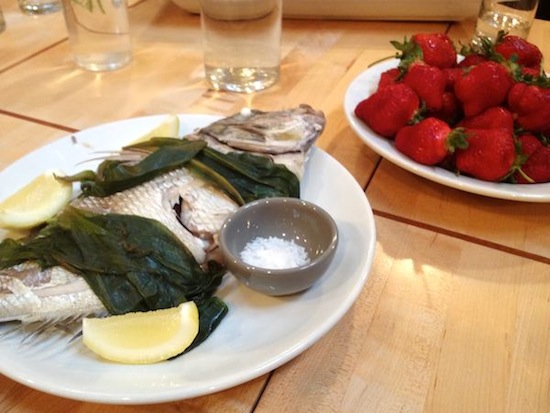It seems everywhere we turn there's more scary news about the fish on our plates. Genetically modified salmon appears headed for supermarket shelves, even as a recent study revealed the salmon could escape into the wild and cross-breed, posing a huge environmental risk for wild fish populations. Another investigation uncovered the dirty secrets of the Thai seafood industry, a major provider of shrimp to the U.S, and one of the worst culprits for human trafficking. That's just the tip of the iceberg. Ninety percent of all shrimp on American plates is imported from Asia, where it is grown on farms using high levels of antibiotics and chemicals that damage surrounding ecosystems, not to mention diners. And while salmon farming is being proclaimed as the way of the future, Monsanto too sees industrial aquaculture as a growing source of revenue for their genetically modified soy feed.
We can do better than this. There are healthy, sustainable fishing communities in our own backyard. So why, then, do we continue to support a seafood industry run on the backs of slaves? Why do we welcome factory-fed fish into our diets? Low food cost is the siren call. It was the promise of a lower cost, high profit protein source that makes Frankenfish seem like a good idea, and that never-ending shrimp buffet sure does taste good. When we turn a blind eye to where our food comes from in the name of convenience and price, we allow others to make our choices about what kind of food system we want to have. Ignorance may be bliss, but we can no longer afford to ignore the impact of our food choices.

Local porgy and strawberries at Parish Hall
Eating well doesn't have to cost more. We like Mark Bittman's philosophy of putting protein in a supportive role, and choosing higher quality, smaller portions of meat and fish alongside lots of vegetables. At a recent meal at Brooklyn's Parish Hall, we watched chef Evan Hanczor do just that: modest servings of wild, local fish were served alongside platters of fresh local produce. This kind of cooking is a growing trend, and we think we can all change our habits from indiscriminate consumption to a conscious, thoughtful understanding of the intricate web that feeds us. In the end, it's this connection to the source that crystallizes the true value of our food.